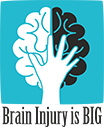empowering the severely brain injured and their families via support, understanding and a network of care
Occupational OT
Occupational Therapy (more commonly known as OT) aims to support individuals to undertake the roles and activities they want and need to do as part of their everyday lives. A person-centered framework is used to ensure that therapy is meaningful to the individual and their families.
Approaches to therapy can vary significantly depending upon the type and severity of injury the individual has suffered. Following brain injury, people can experience a wide range of symptoms and disabilities. This can be overwhelming, but use of a multi-disciplinary approach to rehabilitation will always offer the best chance of positive outcomes.
Occupational Therapists work with people from the outset of their injury and rehabilitation can continue for many years. Therapy is not just focused upon achieving independence, or improving impairments, but will also look at any way that an individual’s well-being can be improved.
As a profession, we recognize that participation in meaningful occupation is central to health. Following brain injury however, this can be severely compromised. Disability can be caused by both physical and cognitive impairments. Depending upon the nature of injury and disability, approaches to therapy could include:
• Assessment and rehabilitation/management of activities of daily living. This can range from use of repeated task practice with aim to achieve independence, through to facilitation of approaches to support physical and psychological well-being; for example, therapeutic bathing.
• Cognitive assessment and rehabilitation. This may also include exploring the best approaches for communicating with and supporting the person.
• Physical assessment and management, including positioning to manage issues with muscle tone and optimize function/prevent deterioration at a later stage.
• Sensory assessment and treatment programmes. These can be used with all individuals following brain injury, but are particularly relevant for those with disorders of consciousness. Some therapists have been trained in the Sensory Modality Assessment and Rehabilitation Technique (SMART). This is an assessment and treatment programme, which aims to improve well-being by providing targeted sensory stimulation.
• Grading activities and the environment to maximise functional performance, participation and well-being. This will include looking at all options to enable an individual to be part of an activity, even if they are not able to actively participate. This could be anything from establishing an enriching sensory environment to assisting with holiday plans.
• Assessment for equipment and wheelchairs to aid function, mobility and posture.
• Recommendations for environmental adaptation within the home to maximise function, or to enable an individual to be cared for.
Occupational Therapy should be provided from the acute stages and into the community, as part of an NHS funded multi-disciplinary programme of rehabilitation. Unfortunately, this can be a short period of intervention (often a matter of weeks, or months at best) and does not always meet the needs of those affected by brain injury. Slow stream therapy (continuing sometimes for years, rather than weeks and months), can be available within specialist rehabilitation centres, or neurological care homes for those with more severe disability.
Within the community, equipment and environmental adaptations can be accessed through Social Services Occupational Therapy. Additional rehabilitation needs can be met through charitable organisations, such as Headway, but this is variable depending upon location.
An alternative option is to source private Occupational Therapy. Rates can vary from around £70.00 to £100.00 per hour and may also require funding for travel, which would generally be paid at 50% of the clinical hourly rate. Some companies do provide cheaper rates to individuals, so it is worth speaking with different therapists before you decide.
Another essential consideration is to ensure that the therapist has specific experience in treating the type of injury and disability your loved one has suffered. Even within the field of brain injury rehabilitation, there is a broad range of specialisms, such as working with individuals who have disorders of consciousness, challenging behaviours or high level cognitive difficulties. As you might imagine, each of these areas would require vastly different approaches and skill sets; therefore, careful research is required.
All Occupational Therapists are regulated by the Health Professions Council. You can check if a therapist is currently registered using their website www.hpc-uk.org/check. Further information can be gained from the Royal College of Occupational Therapists. They have a specialist section for independent therapists and provide an online directory of independent practitioners: www.cotss-ip.org.uk. Assistance can also be obtained by telephoning their helpline: 08451 297699.
In summary, Occupational Therapists can provide support throughout the initial stages of recovery and may continue throughout the individual’s life time; particularly during periods of transition or change. Whilst it is not always possible to overcome impairments or disability, Occupational Therapy will always strive to improve well-being.
Karen Gibson, Specialist Neuro-OT



